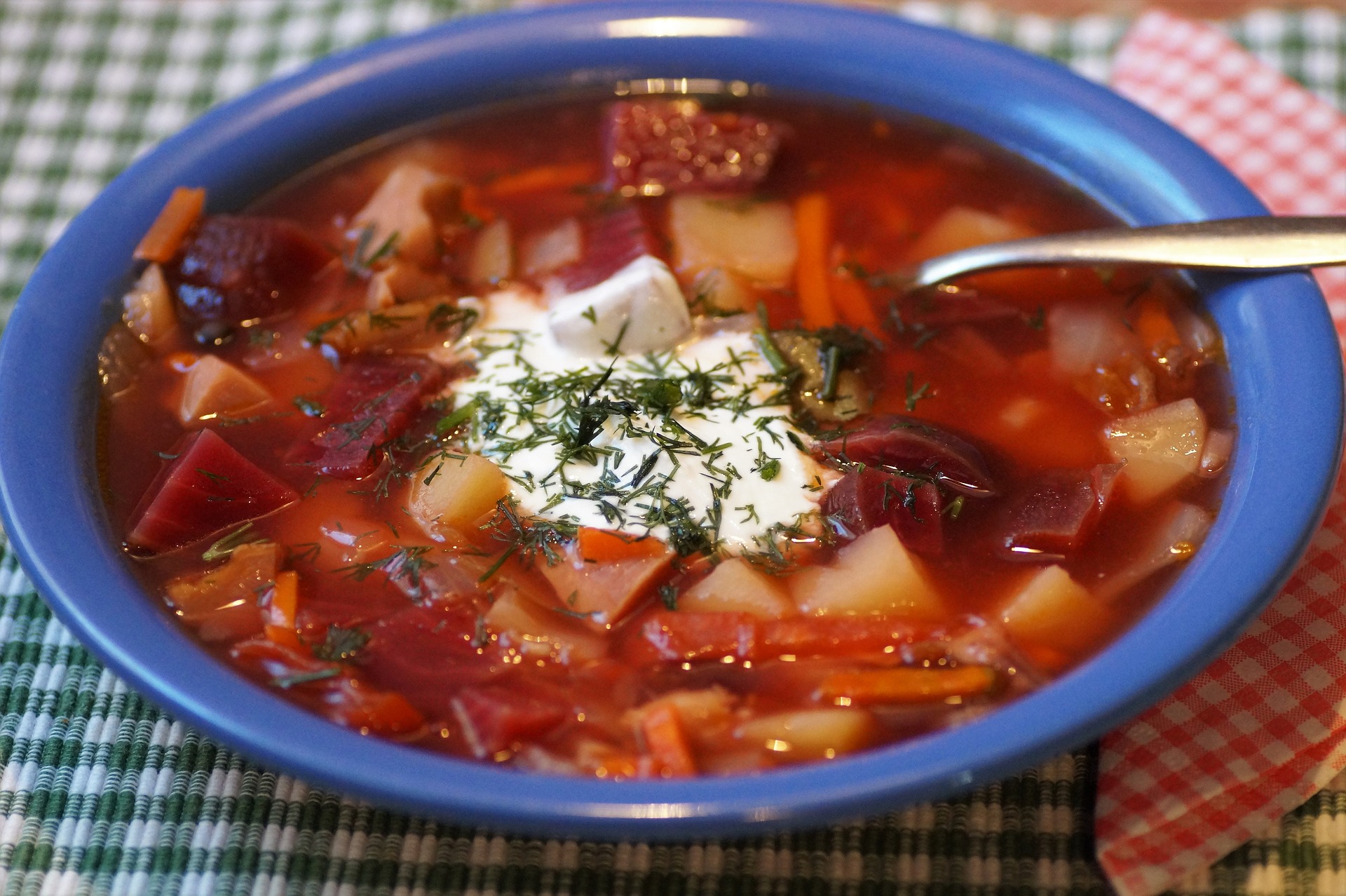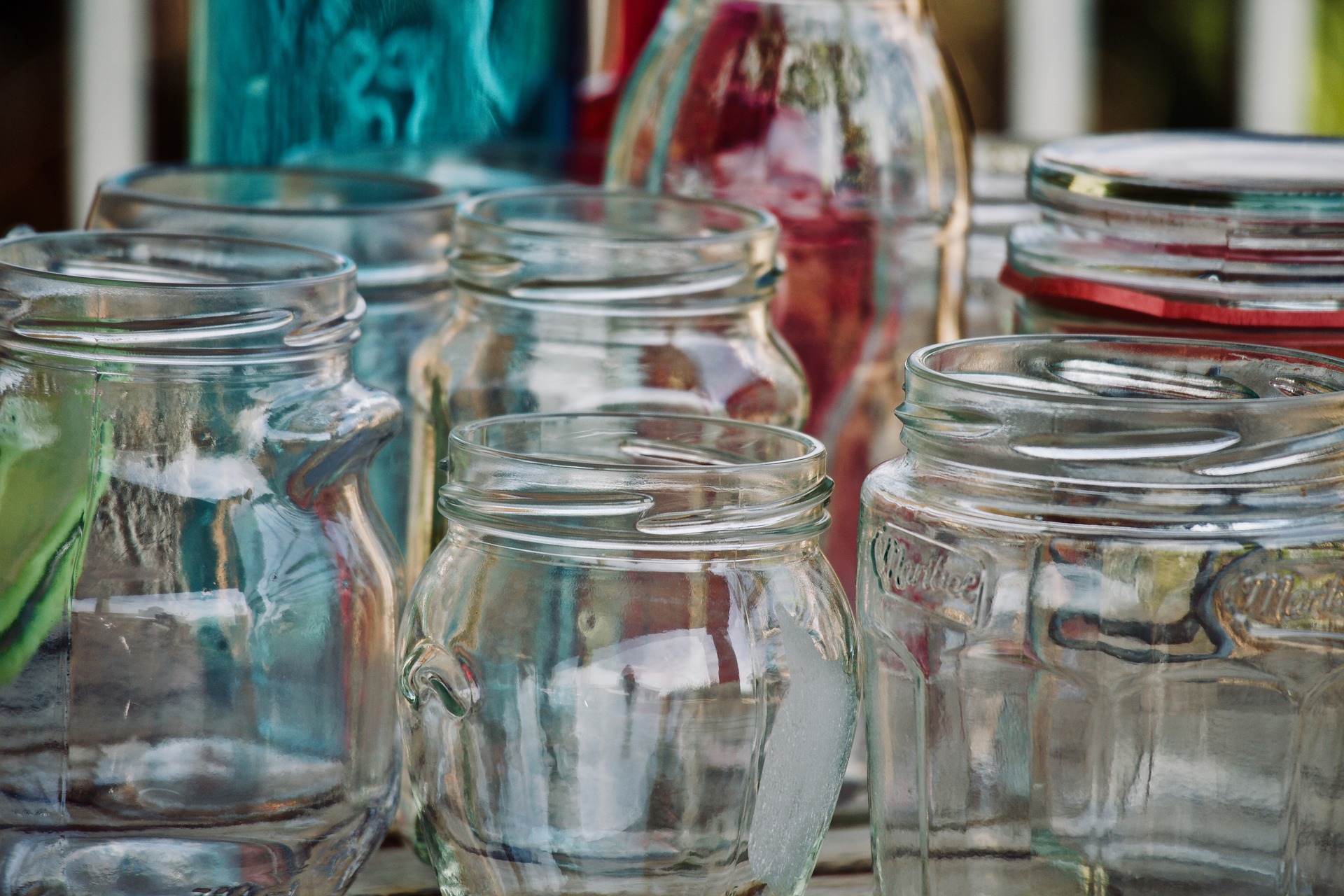Despite being best known by its Russian name, borscht, this richly flavoured beetroot soup is beloved throughout eastern Europe, where it has as many variations as names; some beefy, some vegetarian (especially for the Lenten fast), some thick with bread or soured cream. One thing they all have in common, however, is a glorious pink colour; just the thing to cheer you up in these uncertain times.
Prep 20 min
Cook 45 min
Serves 4
300g beetroot (see step 1)
1 small onion
1 small carrot
1 stick celery
1 small leek
50g butter
2 whole allspice berries
½ bay leaf
1.5 litres gelatinous beef stock (see step 4), or chicken or vegetable stock
2 medium potatoes, preferably waxy (eg, charlotte or maris peer)
½ small cabbage, shredded
4 garlic cloves, peeled and crushed
2 tbsp cider vinegar
1 tsp sugar
½ tsp ground black pepper
Salt|
Soured cream and fresh dill, to serve (preferably Polish soured cream, which has a richer flavour)
1 Fresh or cooked beets?

Borscht is best made with raw beetroot, but if you have only the ready-cooked sort, you can use that instead, though it doesn’t give the finished soup such a vibrant hue or intense flavour. Whichever you use, you’ll need either gloves, or a stout nailbrush, and an apron, because beetroot stains everything it touches.
2 Prep the veg
Peel the onion and carrot, and wash the celery and leek thoroughly. Thinly slice the onion. If using raw beetroot, peel it and cut roughly three-quarters of it into small dice, setting the remainder aside for now; if using cooked, dice and set aside for now. Cut the carrot and celery into smallish dice and thinly slice the leek.
3 Start on the base

Melt the butter in a large pan over a medium-low heat, then fry the onion until fairly soft and translucent. Add the carrot, leek, celery, raw diced beetroot (if using), allspice berries and bay leaf, and stir to coat in the melted butter. Cook for 10 minutes, adding a little stock if the vegetables begin to look dry.
4 Stock questions
On the subject of stock, borscht is most commonly made with beef stock, preferably the good, gelatinous sort, which will give the soup real richness and body. However, if you don’t eat beef, chicken or vegetable stocks will also be delicious; if using the latter, I’d recommend soaking some dried mushrooms in it first to give it more flavour.

5 Add the spuds and stock

Meanwhile, wash and peel the potatoes and cut them into small dice. Add them and all the stock to the pan, bring the whole lot to a merry simmer, then turn the heat down to medium low and leave the soup to bubble away gently for 15 minutes while you prepare the other ingredients.
6 Finish cooking the vegetables
Wash and finely shred the cabbage (you can use any sort you like, or indeed kale or similar; I like to use a white cabbage for its satisfyingly robust texture), peel and crush the garlic, and coarsely grate the remaining raw beetroot, if using. Stir all these vegetables into the pan and cook until everything is tender, particularly the potatoes, which should take about another 10 minutes.
7 Add vinegar, and season

Once the vegetables are done, add the diced cooked beetroot, if you’ve gone down that route, just to warm through, then taste and season with the vinegar (cider is preferable, but just about anything will do, or you could use lemon juice if you prefer), sugar, pepper and a good pinch of salt, and taste again: if you think it needs any more of the above, add them gradually until you’re happy with the flavour. And if you prefer a smoother soup, blend it at this stage, too.
8 And serve
Divide the soup between bowls and serve with a dollop of soured cream and a sprig of dill, with some dark bread on the side for dunking. Note that, if the weather permits, you can also serve borscht cold; it’s nicer well chilled than just left to cool. Sometimes the soured cream (or thick yoghurt) is stirred in rather than served on top.
9 Supersized soup
To make this into a more substantial meal, you can add more substantial garnishes such as chopped hard-boiled eggs, spring onions, radishes, cucumber, all of which work particularly well with cold borscht; for hot versions, go for hunks of sausage, cured pork or shredded meat such as chicken or slow-cooked beef. Vegetarians may be interested to know that cooked white or broad beans are fairly common additions, too.
guardian.co.uk © Guardian News & Media Limited 2010
Published via the Guardian News Feed plugin for WordPress.



